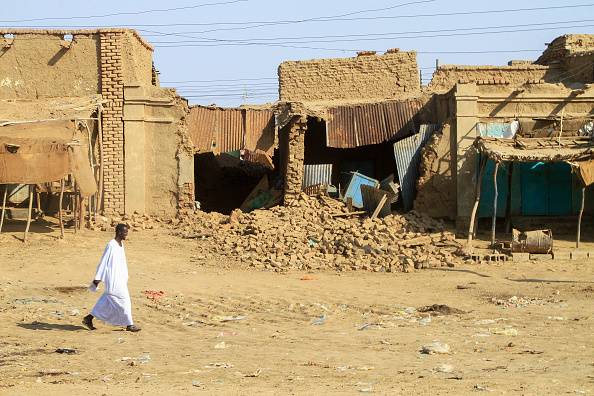
African media often focuses on negative topics such as poverty, conflict, and disease, while not reporting on positive developments and achievements such as education and health care. (AFP via Getty Images)
African countries could lose up to $4.2 billion a year in debt servicing alone as media stereotypes increase their risk profile, a new study has found.
This research The cost of media stereotypes in Africawas carried out by African No Filter, a non-profit organization that challenges the African narrative, and African Practice, a strategic advisory firm.
As the basis for the study, the two companies hypothesized that “negative or biased media coverage of Africa impacts economic development by creating negative perceptions of the continent and reducing its attractiveness as an investment destination.” Ta.
“Through our modeling, we show that Africa's high-risk perceptions, driven by stereotypical narratives in the global media, could be costing the continent up to $4.2 billion annually in inflated loan interest rates. It is estimated that there is.
The study found that negative and biased narratives have real-world implications as they exaggerate risk perceptions and lead to unreasonably high borrowing costs.
Yields or interest rates on sovereign bonds were used as an indicator of capital flows in the study because they determine investors' risk perception.
If a country is considered high risk (in this case due to negative stereotypes), investors may demand higher interest rates to lend money. This means the country will have to pay more debt, potentially increasing total debt servicing costs in the long run.
“Negative media coverage increases a country's perceived risk, leading to higher borrowing costs. Conversely, positive media sentiment correlates with lower risk and lower bond yields. ”
The study found that “African countries are perceived as disproportionately risky by international investors, with significantly higher costs of credit compared to countries with similar political and socio-economic conditions.” It turned out.
The researchers tested the study in four African countries (South Africa, Kenya, Nigeria, and Egypt) and two developing countries outside Africa: Malaysia and Thailand. Denmark, a developed country, also used it.
They highlighted that African media often focus on negative stories related to themes such as poverty, conflict and disease, and do not report on positive developments and achievements such as education and health care.
The media stereotypes and group African cultures, economies, and political systems, often reporting them through a Western lens and misleading them.
Researchers analyzed news coverage during election periods and found that while it is common for negative events to occur during election periods around the world, African countries receive more negative coverage during this period, and the words used are more I found it to be very emotional and often included words like “rigging'' (elections) and “. corruption”.
The study further highlights that while violent incidents are frequently reported in the media from African countries, they are rarely reported in the media from non-African countries. Additionally, negative sentiment is more prevalent in articles about African countries compared to Asian countries.
The study finds that media sentiment is a key determinant of investor sentiment and risk perception, and plays a key role in influencing decisions on capital allocation and borrowing rates in African countries. did. He added that if the media sentiment level becomes more “realistic” about Africa, borrowing rates will also fall.
“This will result in African countries paying significantly less money in loan repayments in the long run. So they are paying extra money on debt, and in return they are paying more for public infrastructure and other critical It can be used for expenses,” he said.

